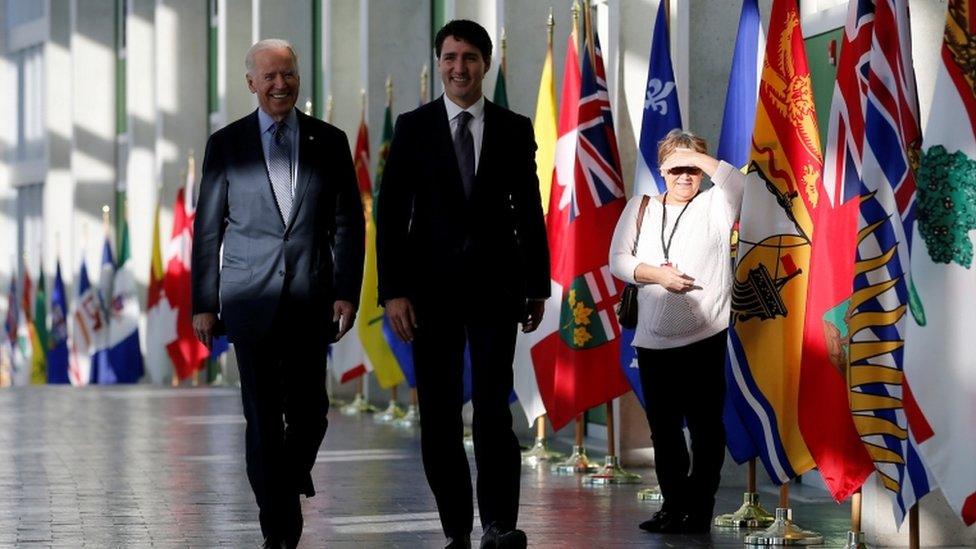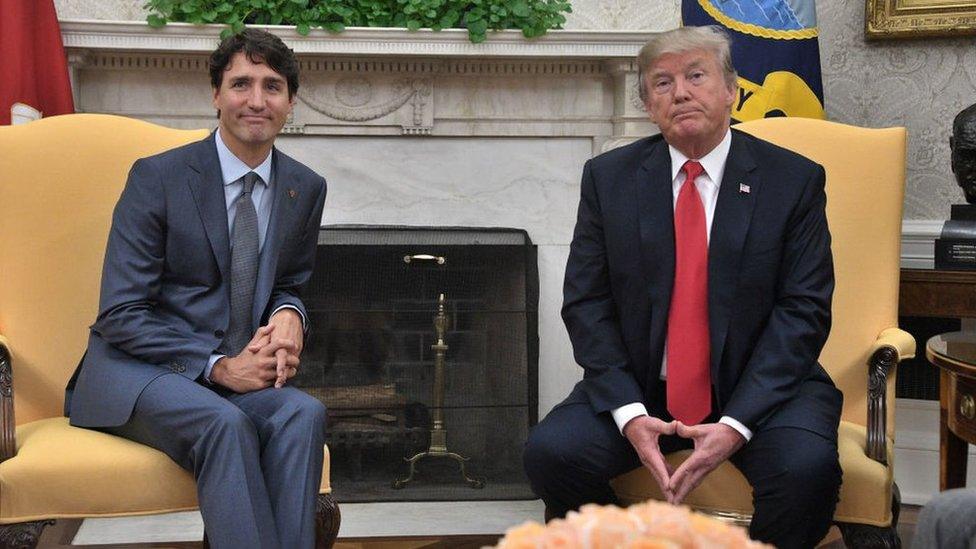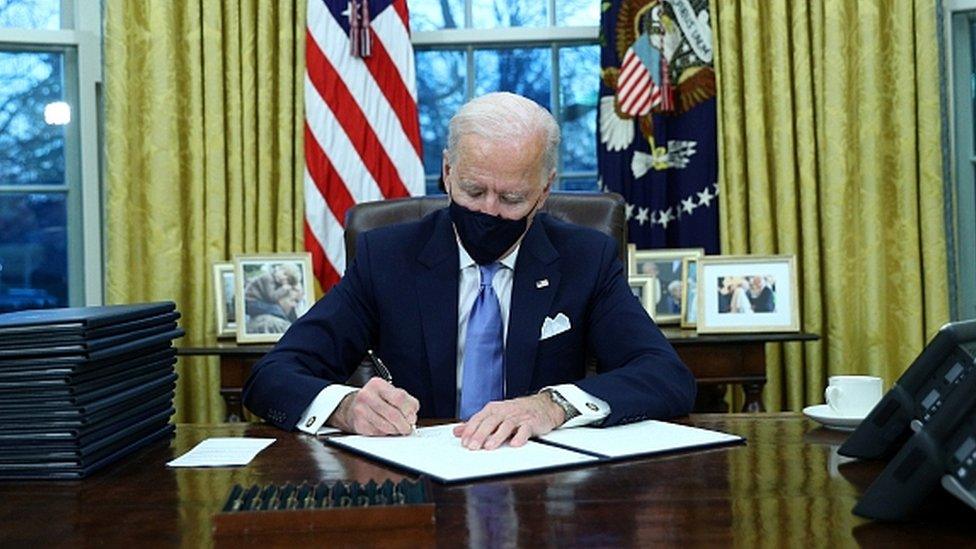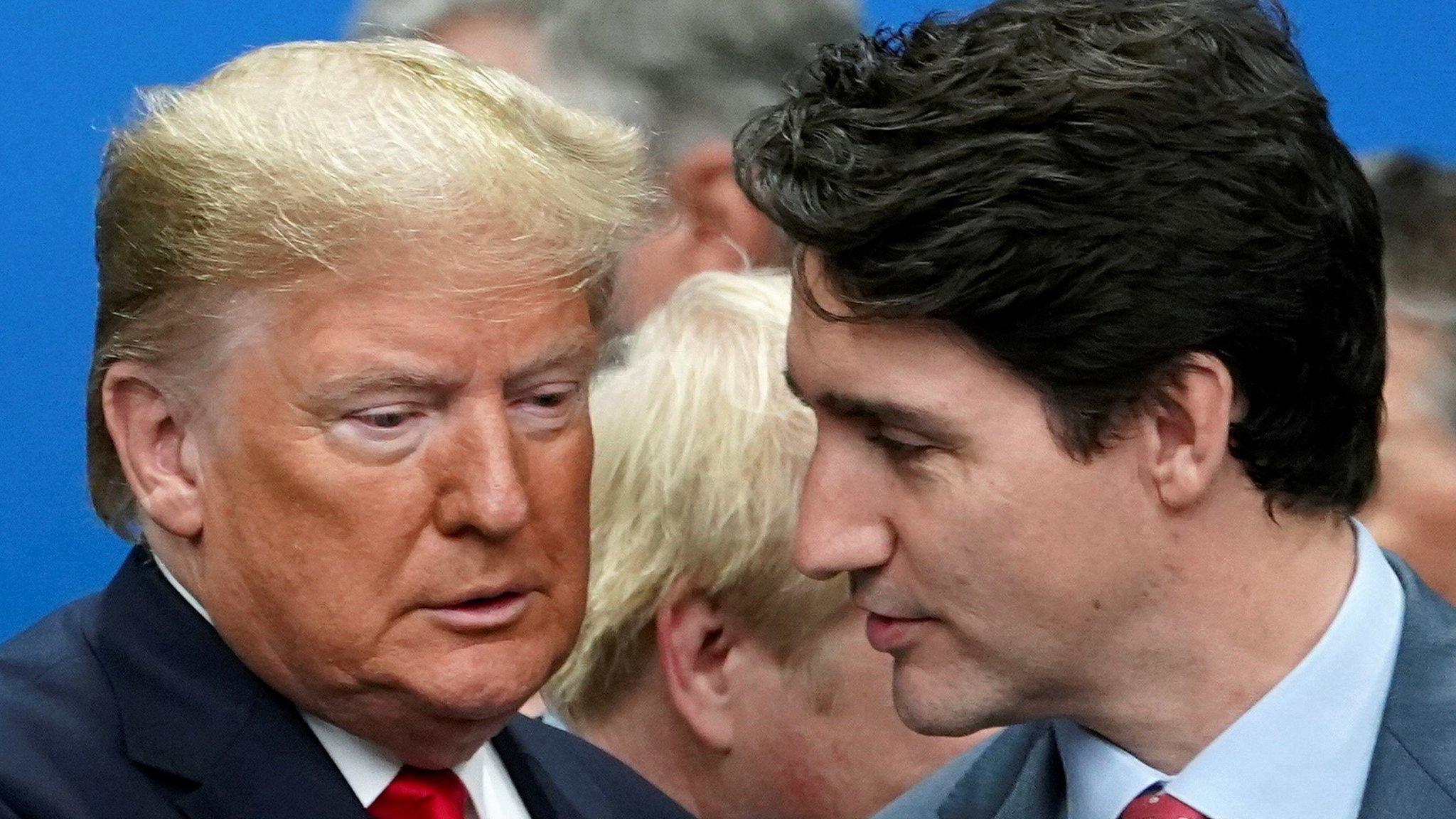Trudeau conveys Keystone pipeline 'disappointment' to Biden
- Published

Canadian PM Justin Trudeau expressed "disappointment" at Joe Biden's decision to cancel the Keystone XL oil pipeline during the new US president's first call to a foreign leader.
Two days into the job, President Biden spent 30 minutes on the phone with Mr Trudeau on Friday evening.
The PM's office said they found shared values on issues like climate change, global leadership and diversity.
The US and Canada enjoy one of the world's largest trade relationships.
Nearly $2bn (C$2.5bn) in goods and services are exchanged between the US and Canada every day.
What did they discuss?
The Canadian prime minister's office said the pair discussed a range of issues, external, including "working closely together to defeat" the Covid-19 pandemic.
"The prime minister raised Canada's disappointment with the United States' decision on the Keystone XL pipeline," a statement said. "The prime minister underscored the important economic and energy security benefits of our bilateral energy relationship as well as his support for energy workers."
On President Biden's side, a White House statement about the call said: "The president acknowledged Prime Minister Trudeau's disappointment regarding the decision to rescind the permit for the Keystone XL pipeline, and reaffirmed his commitment to maintain an active bilateral dialogue and to further deepen co-operation with Canada."
More than 1,000 construction jobs will be lost in the coming weeks due to the cancellation, pipeline builder TC Energy Corp has said.
Despite the two leaders' minor disagreement, they plan to meet next month.
They also discussed expanding co-operation on defence matters and working together in the Arctic region, as well as the "arbitrary detention" of two Canadians - Michael Kovrig and Michael Spavor - in China, Mr Trudeau's office said.
It also said he urged his US counterpart to remove tariffs on softwood lumber - duties that were introduced under Mr Biden's predecessor, President Donald Trump.
Activists praise the cancellation: "This has been a hard fight for over 10 years"
Ahead of the call, Mr Trudeau told reporters he was "very much looking forward to working with President Biden".
The PM hailed Mr Biden's arrival as a "new era" for bilateral ties.
What's happening with the Keystone pipeline?
On his first day in office, Mr Biden signed an executive order revoking the permit for Keystone XL. The pipeline was meant to carry some 830,000 barrels of heavy crude oil each day from fields in Alberta, Canada to the US state of Nebraska, to join an existing pipeline.
Native American groups and environmental advocates have fought the project for more than a decade. But Canadian officials have long pushed for the controversial pipeline, a boon for the country's oil industry.
Mr Trudeau himself raised the pipeline as a top priority in a call with Mr Biden in November, trying to make the case for going forward with the project.
Alberta Premier Jason Kenney has called the cancellation an "insult" and a "gut punch" and has urged Mr Trudeau to consider retaliation. Mr Kenney's provincial government invested some $1.5bn in the project last year.
But it's considered unlikely that Mr Trudeau will take strong action in response. In a statement following Mr Biden's keystone decision, Mr Trudeau said he "welcomed the president's commitment to fight climate change".
How did Trudeau and Trump get on?
The close partnership between Canada and the US soured under Mr Trump, whose administration imposed tariffs on foreign steel and aluminium in 2018, sparking a tense trade war, with retaliatory taxes from Canada.
Matters turned personal later that year at a divisive G7 summit in Quebec after Mr Trudeau stated his objections to the tariffs.

Canadian-US relations grew tense under Donald Trump
Mr Trump said the prime minister's stance against the US would cost Canada "a lot of money" and called Mr Trudeau "very dishonest and weak".
A year later, Mr Trump called the Canadian leader "two-faced" after Mr Trudeau was caught on camera mocking the US president.
Related topics
- Published21 January 2021

- Published4 December 2019
